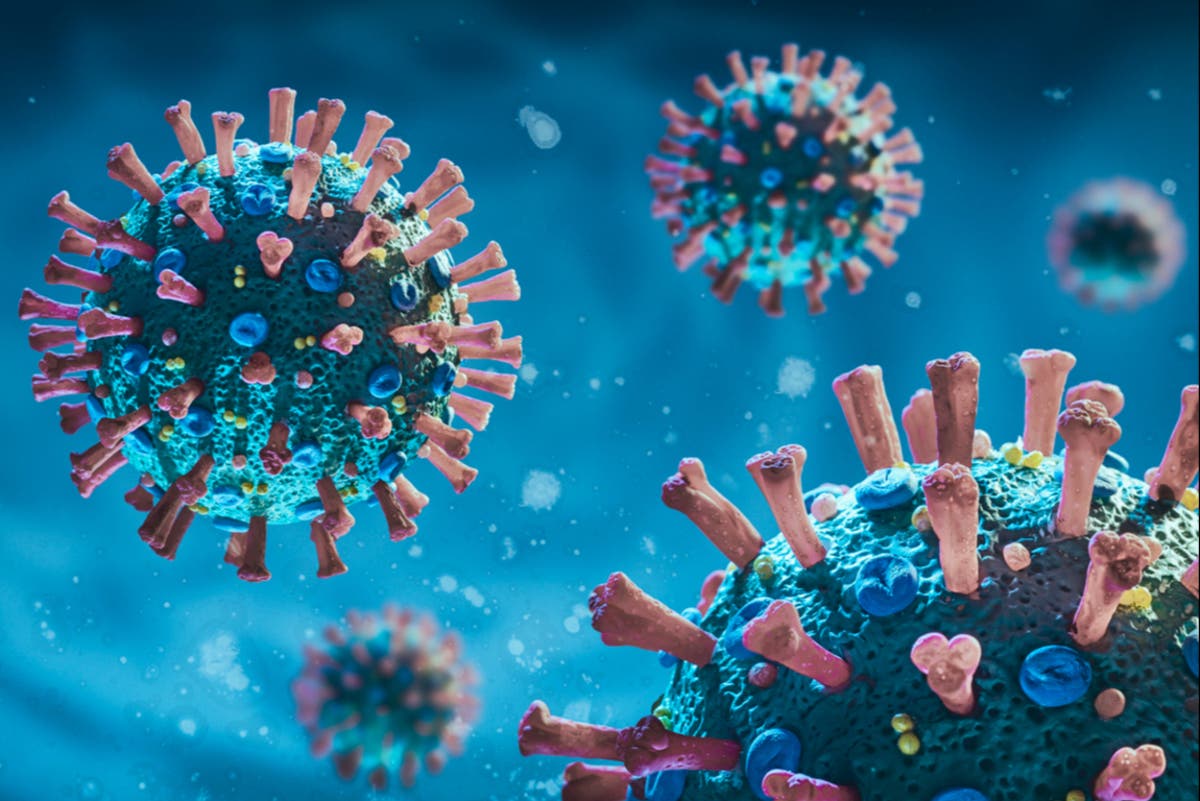New variants of Covid have started spreading in the UK. If you have recently had a persistent cough or sore throat that won’t go away, you may have contracted one of these new variants of Covid, namely N FLiRT and LB.1.
Many of us know a friend or family member who has been suffering from nasty cold symptoms in recent weeks, and there is increasing talk of a resurgence of Covid-19.
“Increased travel and large events such as festivals often result in crowded environments where the virus can spread more easily, and there are no longer legal restrictions such as mask-wearing or social distancing,” said Dr Mariyam Malik, an NHS and private GP at Pall Mall Medical.
Some health experts have also suggested that FLiRT and LB.1 could evade immunity, which could be why vaccinated people are still getting sick.
“The FLiRT variant has specific changes in its spike protein that allow it to spread more easily and evade immunity from previous infections or vaccines,” Dr. Malik says. “Similarly, the LB.1 variant has mutations that help it spread and potentially weaken the protection we get from previous immunity, making these variants different from previous versions of the virus.
“New variants arise because the virus naturally changes over time,” the GP adds. “When many people become infected, the virus has a greater chance of mutating. Our immune responses from previous infections or vaccines can also trigger the virus to evolve.”
What are the symptoms of the new FLiRT and LB.1 Covid variants?
If you’ve been suffering from a persistent cough or sore throat that won’t go away lately, chances are you’ve contracted one of these new strains of Covid.
“The symptoms of the FLiRT and LB.1 variants generally resemble those of previous Covid-19 strains,” says Dr. Malik. “Common symptoms include fever, cough, fatigue, loss of taste or smell, sore throat, muscle or body aches, shortness of breath, headache, and runny nose.

“People infected with the FLiRT and LB.1 variants typically test positive on standard PCR tests,” Dr. Malik adds. “Rapid antigen tests, also known as lateral flow tests, can also detect these variants, although their sensitivity can vary.”
How long will the new Covid variant persist?
This variant will last as long as the previous variants.
Doctors generally recommend isolating yourself and using over-the-counter treatments if you experience these symptoms.
“It’s best to try to isolate yourself, rest, and stay hydrated,” Dr. Malik advises. “Use over-the-counter medications for symptom relief, such as acetaminophen and ibuprofen, and monitor your symptoms closely. Seek medical attention if they worsen.”
How can I prevent my family from getting the new variants?
“To prevent the spread of Covid-19, it is crucial to stay up to date with vaccinations and boosters,” says Dr. Malik. “Regular handwashing helps prevent the spread of the virus.

“Regular testing and isolating yourself if you develop symptoms or test positive can also help control the spread of the virus,” the GP adds.
When should I see my doctor?
“For mild symptoms, rest and home treatment are usually sufficient and there is generally no need to visit your doctor,” says Dr. Malik. “However, it is essential to seek medical attention if you experience severe symptoms, such as difficulty breathing, chest pain, confusion, or persistent high fever.
“People with underlying health conditions should contact their GP if they test positive or develop symptoms as they are at higher risk of serious illness.”

